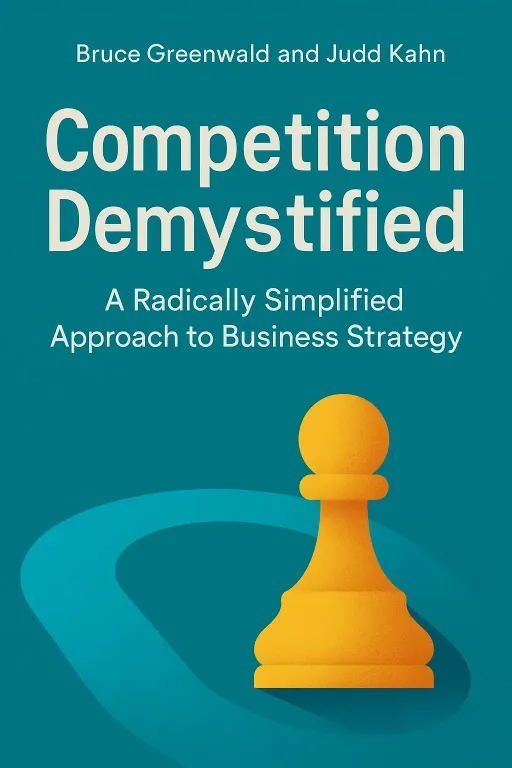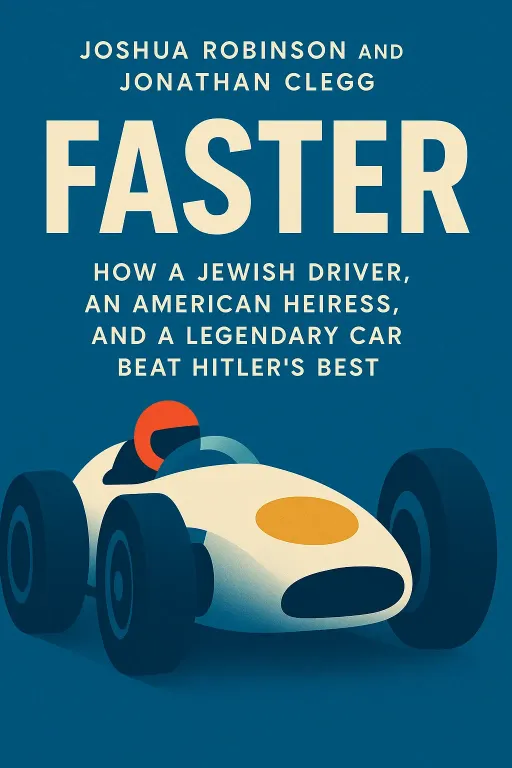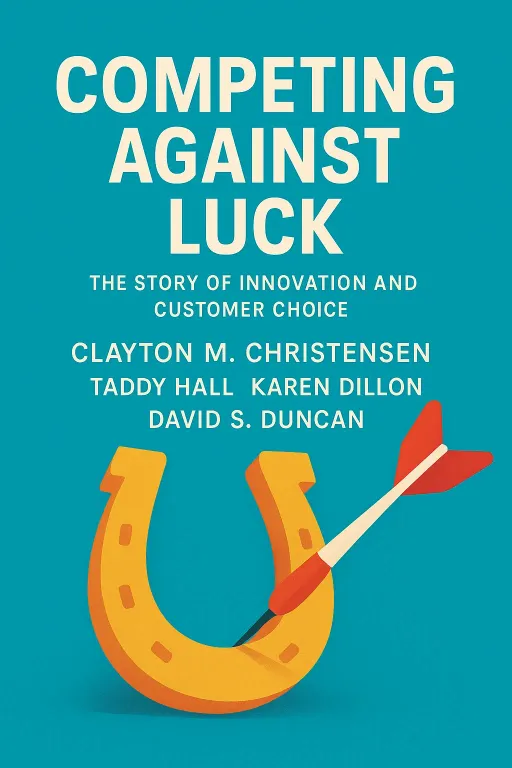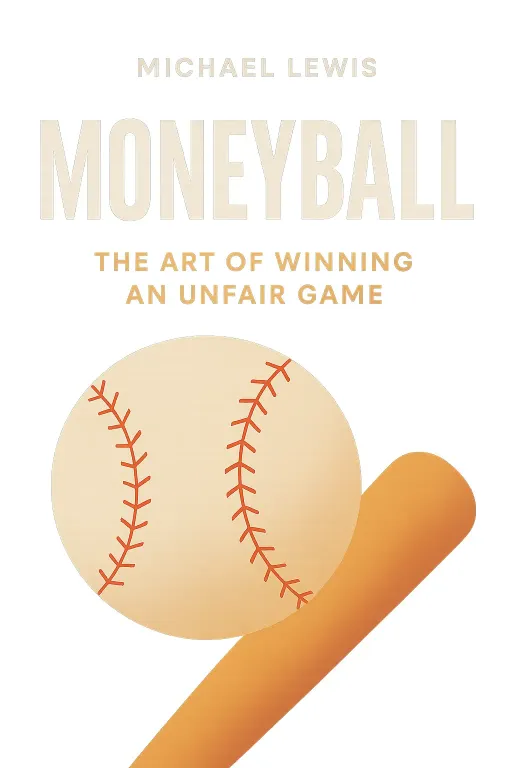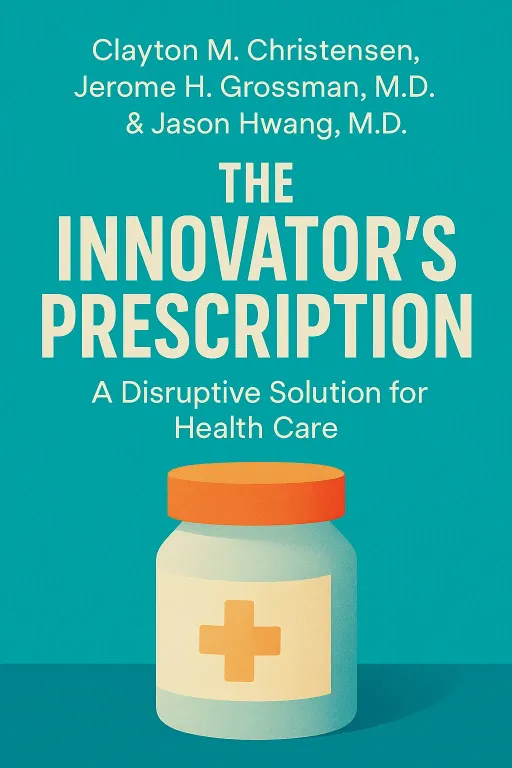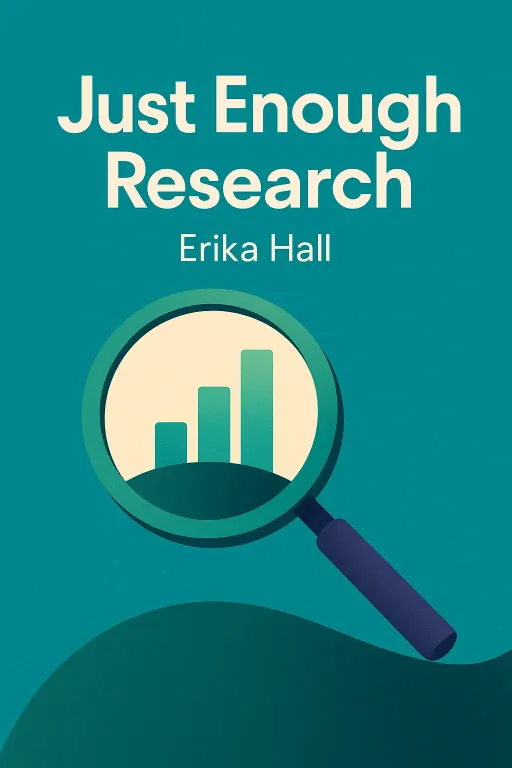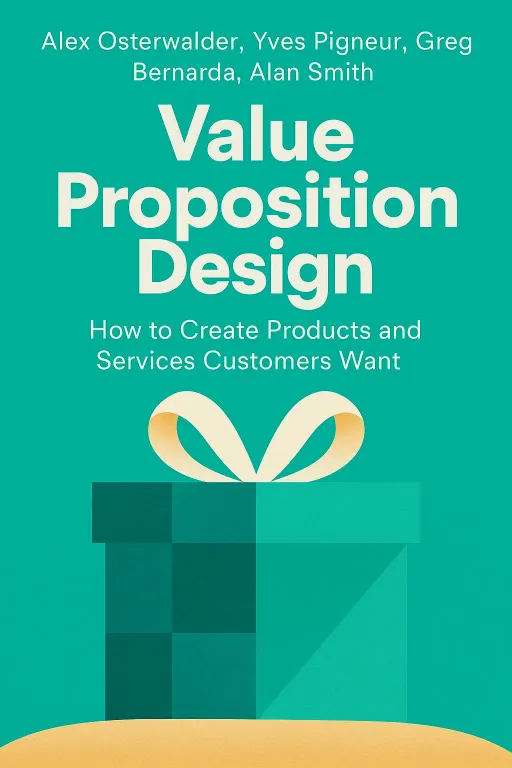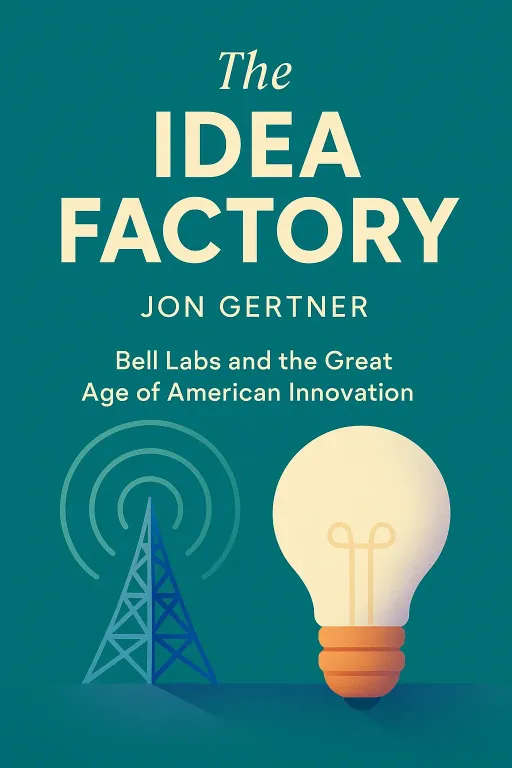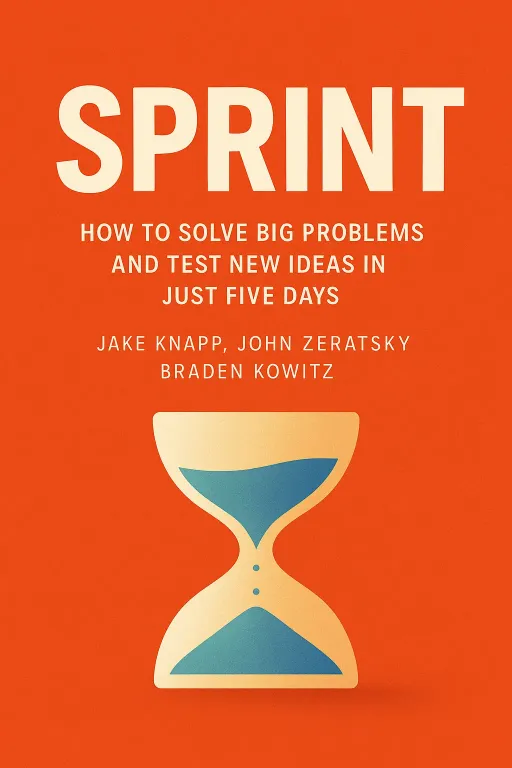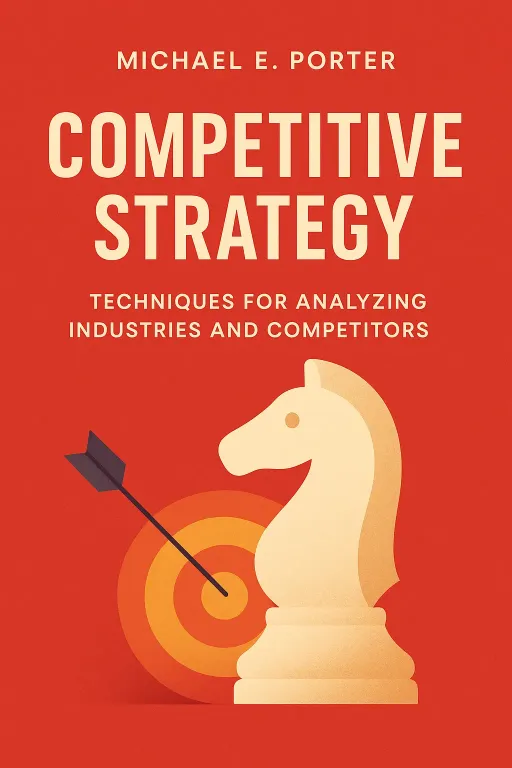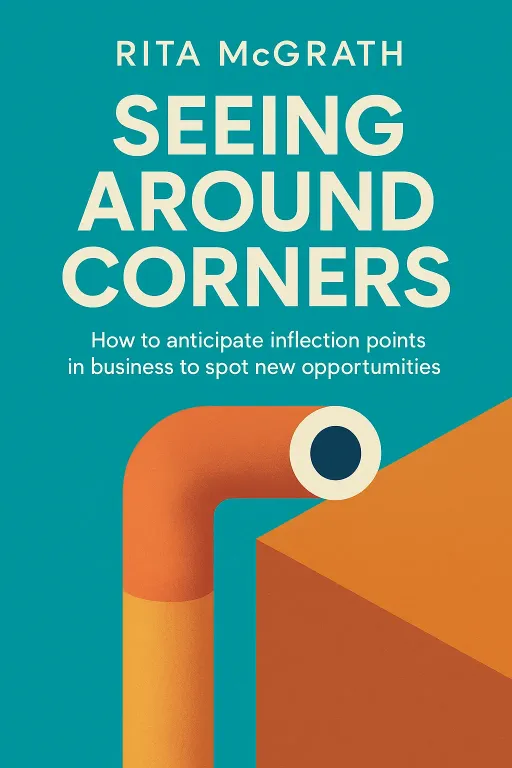
The Myth of Sudden Disruption
11 minGolden Hook & Introduction
SECTION
Joe: You know the story: a brilliant innovation appears overnight and destroys an entire industry. Blockbuster, Nokia, Kodak—all gone in a flash. Well, that story is a complete myth. Lewis: Oh, I like a good myth-busting to start the day. What do you mean, a myth? It certainly felt like a flash when my iPhone suddenly made my Nokia brick look like a fossil. Joe: It felt like a flash, but the end never comes suddenly. It starts with a whisper, years, sometimes decades, before anyone is listening. And that's the central premise of a fantastic book we're diving into today: Seeing Around Corners by Rita McGrath. Lewis: Right, and McGrath is a giant in the world of business strategy, a top professor at Columbia. It's interesting—I read she was heavily inspired by Andy Grove, the legendary CEO of Intel, but felt that no one had really built a practical playbook for his ideas on these big shifts. This book is her attempt to do just that. Joe: Exactly. She gives us a toolkit not for predicting the future, but for seeing the present more clearly. And it all starts with a simple, powerful metaphor that really frames the whole idea. She says that when spring comes, snow doesn't melt everywhere at once. Lewis: Huh. Okay, I'm with you so far. Joe: Snow melts first at the periphery. At the edges, where it's thinnest and most exposed. And that, she argues, is exactly how massive change happens in business and in life.
The Art of Seeing: How to Spot Inflection Points Before They Happen
SECTION
Lewis: That’s a great analogy. So the big, disruptive changes don't just explode in the center of an industry. They start as little puddles at the edges. Joe: Precisely. These are what she calls "inflection points." They're moments where the fundamental assumptions of a business begin to change. And the early warnings are almost never in the boardroom or in the quarterly reports. They’re out at the edges, with the people who are most frustrated, most underserved, or most willing to experiment. Lewis: Okay, that makes conceptual sense. But it also sounds a little abstract. Can you give me an example of an industry where the snow was melting at the edges and nobody in the middle noticed? Joe: I've got the perfect one, and it's right from the book. Let's talk about the hearing aid industry. For most of the last 50 years, it's been a quiet, stable, and incredibly lucrative business for a handful of companies. Lewis: Right, I picture them as these expensive medical devices you get from a specialist. Joe: Exactly. In 1977, the FDA classified hearing aids as medical devices. That meant you could only get one through a licensed audiologist after a series of tests. The devices themselves were complex and very expensive, often thousands of dollars per ear. Lewis: A classic gatekeeper model. The experts control access. Joe: And the result? The book cites a staggering statistic: 80% of adults between 55 and 74 who could benefit from a hearing aid don't have one. 80 percent! Lewis: Whoa. Wait, so a whole industry was basically held hostage by a 40-year-old rule and high prices? That's insane. Why weren't people storming the gates? Joe: Two reasons. First, the cost. Second, and this is crucial, the social stigma. Hearing aids signaled "old" and "disabled." So you had this massive, underserved market of people who had mild to moderate hearing loss but wouldn't dream of getting a "hearing aid." They were the snowfield—a huge, frozen, untapped market. Lewis: Okay, so where does the melting start? Where are the edges? Joe: The edges were people who weren't part of the official industry at all. In the early 2000s, citizen petitions started showing up at the FDA, arguing for over-the-counter access. That was a weak signal. Then, tech companies who had nothing to do with medical devices started creating something called PSAPs—Personal Sound Amplification Products. Lewis: PSAPs? Sounds like a government agency. Joe: It does, but think of them as "audio enhancers." Bose created "Hearphones." Other companies made earbuds that could amplify conversations. They weren't marketed as hearing aids, so they bypassed the FDA regulations entirely. They were cooler, cheaper, and you could buy them online. Lewis: Ah, so the 'snow' was the rigid, expensive medical model, and the 'melting edge' was these cheaper, non-medical sound amplifiers that started popping up. They were solving the same "job to be done"—helping people hear better—but without the cost and stigma. Joe: You've got it. And that slow melt, which happened over 15 years, eventually led to the entire regulatory structure being dismantled. In 2017, legislation was passed to allow for over-the-counter hearing aids. The industry is now projected to grow from around $8 billion to over $40 billion. The inflection point didn't happen in 2017; it had been unfolding at the edges for decades. Lewis: That's a powerful story. It makes me wonder, though, how does a leader, sitting in their office in the middle of that big, comfortable snowfield, even know where to look for the edges? It seems like you'd have to be actively looking for trouble. Joe: You do. And McGrath argues that's the job. You have to get out of the building. You have to talk to your most difficult customers. You have to find the people who are using your product in weird, unintended ways. You have to look for where the energy and the frustration are. Because that's where the future is being born. Lewis: It’s a mindset shift, then. From protecting the core to exploring the periphery. Joe: Exactly. But that's the million-dollar question, and it leads right to the second, and maybe harder, part of the book. It's not enough to see the change coming. You have to survive your own company's immune system trying to kill it. McGrath calls these "organizational antibodies."
The Science of Acting: From Seeing to Seizing Opportunity
SECTION
Lewis: Hold on, 'organizational antibodies'? That sounds like something from a biology textbook. What does she actually mean by that? Joe: It's a brilliant metaphor. Think about your body's immune system. Its job is to identify and destroy foreign invaders to protect the whole. An organization has the same thing. Its "antibodies" are the systems, processes, and cultural norms designed to protect the core business—the thing that makes money right now. Lewis: So, things like budget allocation processes that favor proven products, or performance reviews that reward hitting predictable targets. Joe: Precisely. And when a new, disruptive idea comes along—a "foreign invader"—the organizational antibodies swarm and kill it. Not because they are malicious, but because they are doing their job: protecting the existing, profitable core. Lewis: That’s a fantastic and slightly terrifying way to put it. It explains so much. It explains why the smartest companies can be so dumb about the future. Joe: It's the perfect lens through which to view the classic story of Netflix and Blockbuster. Everyone thinks Blockbuster was just clueless, that they didn't see streaming coming. That's not true. Lewis: Really? I thought they just laughed Reed Hastings out of the room when he tried to sell them Netflix. Joe: That's part of the legend, but the reality is more tragic. Blockbuster saw streaming very early. In the year 2000, they had a partnership with Enron—of all companies—to build a video-on-demand service. They were years ahead of Netflix on the idea. Lewis: Okay, so what happened? Why am I not streaming movies from Blockbuster.com right now? Joe: The organizational antibodies killed it. Blockbuster's entire business model was built on two things: physical stores and late fees. In 2000, they made $800 million from late fees alone. That was 16% of their revenue. Lewis: Wow. So late fees weren't an annoying side effect; they were a core profit center. Joe: A massive one. So when the streaming project came up for funding, the antibodies went to work. The executives in charge of the retail stores saw it as a threat that would cannibalize their sales. The finance department saw it as a high-risk, low-margin venture compared to the guaranteed cash cow of late fees. The project was starved of resources and eventually died. They saw the inflection point, but their own immune system wouldn't let them act. Lewis: Their success was the very thing that prevented their survival. That's a corporate tragedy. Joe: It is. Now, contrast that with Netflix. They didn't have a legacy business to protect. They were built from the ground up on what McGrath calls "discovery-driven planning." They didn't pretend to know the future. They made a series of small, educated bets to learn as quickly as possible. Lewis: Okay, but the Qwikster thing was a huge, embarrassing failure. In 2011, they tried to split the DVD business and the streaming business, jacked up the prices, and lost 800,000 subscribers in a quarter. The stock tanked. How is that a good example? Joe: That's the key! From a traditional planning perspective, Qwikster was a disaster. But from a discovery-driven perspective, it was an incredibly valuable lesson that they learned relatively cheaply. Lewis: Cheaply? It cost them billions in market cap! Joe: In the short term, yes. But what did they discover? They learned their customers were not ready to abandon DVDs, and they valued the convenience of a single, integrated service above all else. They reversed the decision in less than a month. They took the hit, absorbed the learning, and it made their transition to streaming much, much smarter in the long run. They learned what the customer truly valued, and that knowledge was worth more than the temporary stock drop. Lewis: That’s a really interesting reframe. It’s not about being right the first time; it’s about having a system to figure out what’s right before you bet the whole company. Joe: Exactly. Blockbuster was built to execute a known business model perfectly. Netflix was built to discover a new one. When the inflection point hit, one system was brittle, and the other was resilient. Lewis: This sounds great, but it also sounds incredibly risky and chaotic. No wonder so many companies prefer to stick with what works. It's comfortable. Fighting your own antibodies sounds exhausting. Joe: It is exhausting. And that's why so few incumbents survive these shifts. It takes a specific kind of leadership, one that is willing to protect the weird, underfunded projects at the edges from the powerful antibodies at the core.
Synthesis & Takeaways
SECTION
Lewis: So when you put it all together, what's the one big takeaway? Is it about being a better futurist? Joe: Not at all. I think the deepest insight from Seeing Around Corners is that it isn't about having a crystal ball. It's about humility. It's about admitting that the assumptions that made you successful yesterday might be the very things that make you obsolete tomorrow. The real work isn't predicting the future; it's systematically questioning the present. Lewis: And getting out of the building. Talking to the people at the 'edges'—the frustrated customers, the junior employees, the weirdos trying new things. Joe: Exactly. The future is already here, as the writer William Gibson famously said, it's just not evenly distributed. Rita McGrath gives us a map to find those distributed pieces. Lewis: So for everyone listening, what's one small thing they could do this week to practice this? To start looking for their own melting snow? Joe: McGrath suggests a simple exercise, and I love it. Talk to someone who represents the future. It could be a younger colleague, a customer using your product in a weird way, or someone from a completely different industry. Just ask them what they're excited about and what frustrates them. Don't try to sell them anything. Just listen. You'll be amazed at what you learn. Lewis: That's a great, actionable step. And we'd love to hear what you discover. Find us on our socials and share one 'weak signal' you've noticed in your own world. It could be anything—a new app your kids are using, a strange request from a client, anything. Let's build our own map of the edges. Joe: This is Aibrary, signing off.
